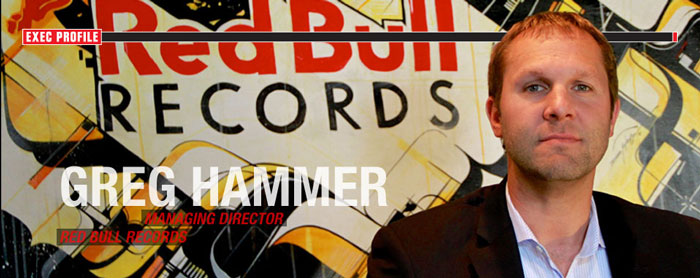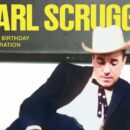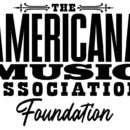BACKGROUND: After an illustrious career on the major label side of the industry, Greg Hammer flipped the script when he found a home at Red Bull Records. Opening its doors on July 2, 2007, the label Hammer helped create puts music first by signing a small roster of unique artists it aims to turn into household names.
Greg Hammer Managing Director, Red Bull Records
Years with Company: 7
Address: 9044 Melrose Ave., West Hollywood, CA 90069
Phone: 323-606-7680
Web: http://redbullrecords.com
Clients: AWOLNATION, Beartooth, Blitz Kids, Five Knives, Heaven’s Basement, Itch, New Beat Fund, Twin Atlantic, Black Gold, Innerpartysystem
By Andy Kaufmann
Playing Bitch
I studied business marketing and was going to go to law school, but didn’t get into any of the schools I wanted. My dad’s attorney was like, why don’t you do what you want and get a job in the music business? By sheer luck, my resume went across the desk of Daniel Glass, who at the time had just left EMI Records. He was starting his own label and Daniel saw my resume at the same time he was talking to an agent I had interned for. The agent said some nice things about me, so Daniel called me in and somehow I bamboozled him into thinking I knew what I was doing. I don’t think my actual job title was bitch, but that’s pretty much what I did for him. I did whatever he wanted.
Rising Tides
Daniel’s label was called Underdog Records. Without him, I wouldn’t be where I am today. I learned more in the first six months working for him than I did the next five years. Then, Doug Morris called Daniel and asked if he’d help start a company called Rising Tide Entertainment. Daniel brought me along and I became the seventh employee of Rising Tide Entertainment, which three months after its inception became Universal Records.
The Path to Red Bull
I started in the A&R research department, but then found a band that sold a million records and became a full-on A&R person. In 2001, I left Universal to do some independent production, but then had the opportunity to help run another label. One of the bands I produced got signed to RCA and they asked me to manage them, which was a mistake. The typical story: Get signed by one guy, he gets fired and a day before the single’s going to be shipped to radio the band gets dropped. At that point, I was looking to get out of the record business. That’s when the opportunity came to work with Red Bull on the music marketing side. A couple years later, Dietrich Mateschitz, the owner of Red Bull, decided he wanted to start a label.
The Same, But Different
There are many aspects of the company that make us like any other record company. We have an A&R staff. We have a marketing team. We have radio. The thing that makes Red Bull Records stand apart is there’s not the focus on immediate return that has to happen with many companies. That allows us to have patience and take a long-term approach with our artists. It’s about building careers, not necessarily selling a song or an album or a piece of plastic. We’re not competing against anybody. I’m not going to say that we’re better than anybody else; our approach is just a different.
Playing the Long Game
Any artist we sign, we look at not where they’re going to be a year or two from now, but where they’re going to be five and 10 years from now. An artist like Heaven’s Basement, I don’t know if anybody expected that band to sell millions of albums, but it’s not about that. It’s about finding their audience and building an amazing touring career and merchandise. Awolnation has sold five million singles in the U.S. and a couple million more worldwide, but I wouldn’t say we are where we need to be with that artist. Another band like Twin Atlantic, it’s the same thing. Ultimately, we want them to be doing arenas. That’s going to take time.
Tapping In
My job is to make sure the artists we sign fit the aesthetic of what we’re trying to accomplish. We are looking for artists that zig while everyone else zags. We’re looking for left of center. We still want artists who can break through to a wider audience, but that’s our job, to find out how to get them there. Our artists’ job is just to make great music.
We [find artists] like anyone else. Awolnation was a demo submitted by a manager. Twin Atlantic we found off a sampler for a music festival. Itch was brought to us by a producer. Blitz Kids were discovered through a Red Bull program called Red Bull Bedroom Jam in the U.K. That’s exciting, because Red Bull is in every country in the world and they have people whose job is to know who the cool bands are in any specific town.
Partnering Up
Our mandate is to be the most artist-friendly label out there. The best way to do that is to be fair with the artists we sign. Our job is to become profitable, but at the same time, since we have the ability to be patient, it’s important that we partner with our artists and help develop them. We need to elevate artists to their goals.
No Bull
Our job is not to promote the brand. Our job is to find amazing artists and get them to the next level. Some of our artists are huge Red Bull drinkers. Some, not so much. None of them are required to do anything for the brand. That being said, many of them want to be part of what Red Bull does. To really understand Red Bull, you have to see all of the areas of culture, sports and entertainment the brand is involved with. The brand has a TV network, a magazine, five soccer teams, two hockey teams, two F1 teams… They make sports up, like Crashed Ice.
Red Bull Recording
We have 10 [recording studios] all over the world. Red Bull Studio in L.A. is a world-class facility. It won the MIX engineering excellence award in 2007. There are studios in South Africa, New Zealand, New York, London... Those are available for artists who have a relationship with the brand, free of charge. There isn’t a quid pro quo. It’s more like, hey, if an artist is passionate about the brand, the brand wants that artist to be successful and if giving them free studio time can help, that’s a win.
Being Innovative
Red Bull has always taken the approach that, if it’s been done before, it’s not appealing. We take that approach seriously. It’s very important we try new things. The name of the Twin Atlantic album was Vivarium, like an aquarium, an enclosure that has living organisms, so to promote that record we got download cards that had seeds in them-—you would literally plant the download card and flowers would grow. We were one of the first labels to do a Twitter-for-a-free-track. If you tweeted the band’s name, you got a free download. A lot of bands have followed suit.
Every Artist a Success
We’re not competing against anybody, but we have a different philosophy than most. Our goal is to have every one of our artists be successful. The best way for that to happen is to have a small roster we can put all of our resources behind. If you have multiple releases every month, it’s difficult to be able to focus and give each artist the attention they deserve. As part of that philosophy, we also have a diverse roster. Most independent labels kind of own a certain scene and genre. We’ve taken the opposite approach. We don’t want artists that sound similar to each other. Partially, that’s so we don’t compete against each other, but also because, to a certain extent, we are representative of the brand and Red Bull is many things to many people.











